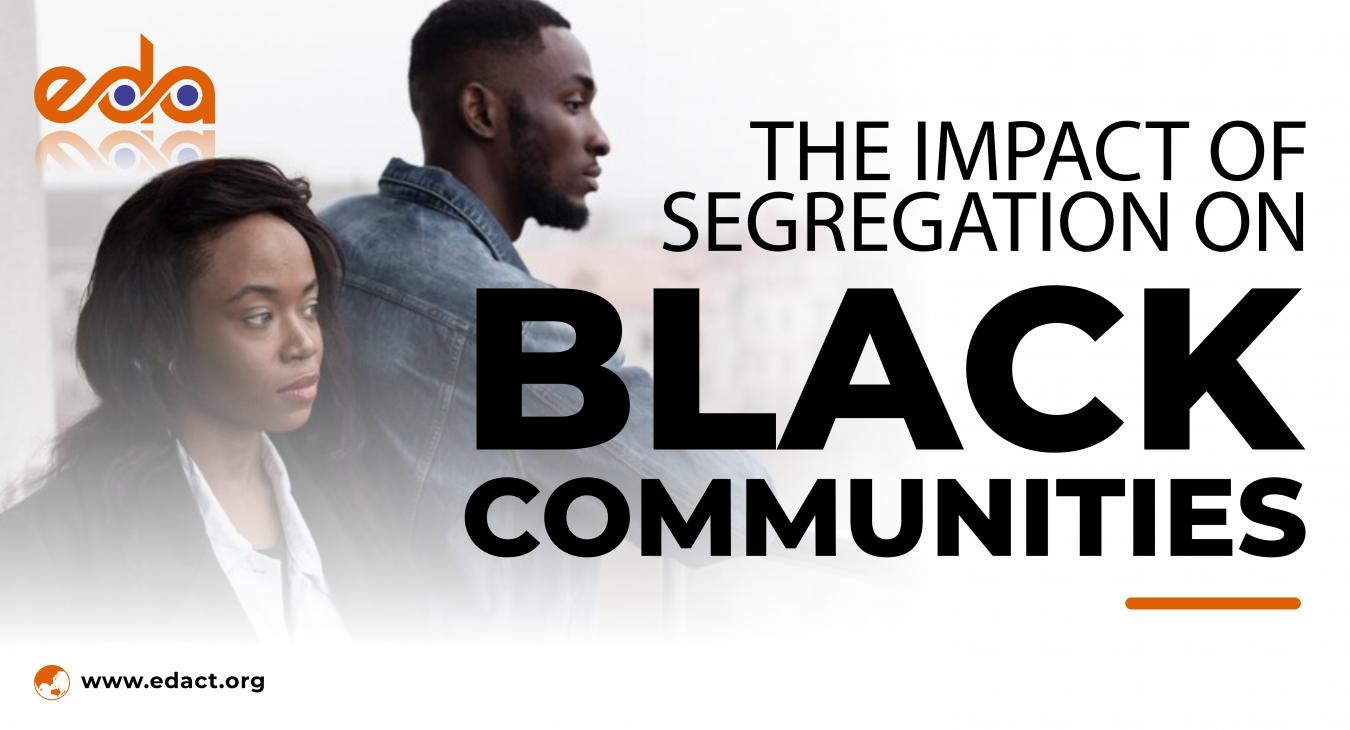
The Impact of Segregation on Black Communities
Black communities in America have been profoundly impacted by segregation, which has also cast light on the systemic injustices that have impeded their progress. This blog post will examine the lasting effects of segregation and its implications for BIPOC (Black, Indigenous, and People of Color) communities, underserved populations, and the pursuit of equitable development.
The Origins of Segregation
In America, segregation has strong historical roots that date back to the time of slavery, Reconstruction, and the Jim Crow laws. It did not develop overnight. Racial inequality and prejudice were sustained by the systematic denial of Black people's citizenship by means of laws, policies, and practices.
The impact of segregation on BIPOC (Black, Indigenous, and People of Color) communities
Segregation has had a profound effect on Black communities, creating noticeable socioeconomic disparities. Economic progress has been hindered by redlining, discriminatory lending policies, and unequal access to resources. These factors have contributed to persistent wealth imbalances and economic inequality.
Redlining and Housing Discrimination
Redlining, a discriminatory practice by which banks and other financial institutions withhold loans or insurance from communities deemed "risky" due to their racial composition, has had a devastating impact on Black neighborhoods. This practice has limited access to affordable housing and contributed to housing instability among Black families.
Unequal Access to Resources
Black communities often face barriers to accessing quality education, healthcare, and employment opportunities. This unequal access to resources perpetuates cycles of poverty and limits economic mobility for Black individuals and families.
Discriminatory Lending Policies
Discriminatory lending practices, such as predatory lending and subprime mortgages, have disproportionately targeted Black borrowers. These exploitative practices have resulted in higher interest rates, fees, and foreclosure rates for Black homeowners, further exacerbating wealth disparities.
Persistent Wealth Imbalances
Generational wealth accumulation has been hindered by systemic barriers that limit Black individuals' ability to build and transfer wealth to future generations. Without access to affordable housing, fair lending practices, and equitable economic opportunities, Black families struggle to achieve financial stability and accumulate assets.
Health Disparities
Segregation has harmed Black communities' health and well-being by widening gaps in access to healthcare, the quality of the environment, and health outcomes. Different exposure to environmental risks, increased incidence of chronic diseases, and restricted access to healthcare are all results of structural racism and socioeconomic determinants of health.
Educational Inequity
Segregation has prevented Black kids from receiving high-quality education and educational resources, making the educational system a battlefield for the fight for equality. Black parents, teachers, and students have persevered in fighting systematic inequalities in the educational system and fighting for educational parity in the face of great obstacles.
Black communities have demonstrated remarkable resilience, strength, and solidarity in the face of hardship. Community leaders, activists, and grassroots organizations like EDA (Equitable Development Action) have mobilized for social justice, advocating for change, and building networks of support and empowerment. Part of this is the Underserved Business Month that EDA is hosting, which promises to be impactful and transforming for BIPOC and underserved business owners. Underserved businesses are women, minorities or BIPOC, veteran-owned businesses, and businesses in low wealth, rural and disaster-impacted communities included in a state or federal emergency declaration or proclamation
As we celebrate Black History Month, we celebrate the Black Community for standing strong and flying above all these challenges.
Stay connected to us this month as we showcase more interesting content on the relevance of Black History Month.
If you have questions or enquiries concerning the Underserved Business Month, contact us at support@edact.org
Resources
- "The Warmth of Other Suns: The Epic Story of America's Great Migration" by Isabel Wilkerson
- "The Color of Law: A Forgotten History of How Our Government Segregated America" by Richard Rothstein
- Research paper: Journal of African American History or the Journal of Black Studies
